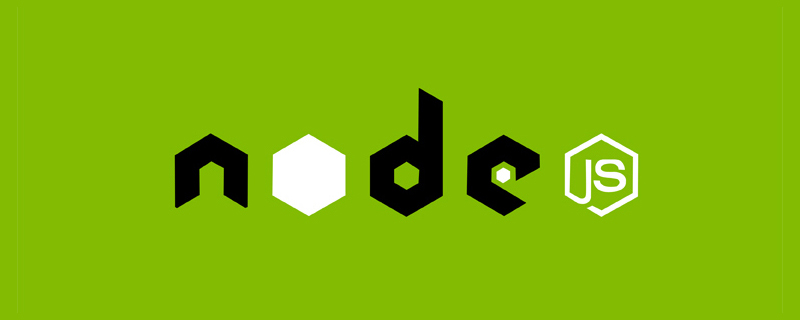This time I will bring you the use of node puppeteer to implement website login code analysis, and the precautions for using node puppeteer to implement website login. The following is a practical case, let's take a look.
puppeteer introduction
puppeteer is a node library developed by the Chrome team. It can control browser behavior through APIs, such as clicks and jumps. Transfer, refresh, execute js scripts in the console, etc. With this artifact, it is easy to write a crawler, automatically sign in, take screenshots of web pages, generate PDFs, and automate testing.
Simple example of puppeteer
The code comes from the official website:
const puppeteer = require('puppeteer');
(async () => {
const browser = await puppeteer.launch();//打开浏览器
const page = await browser.newPage();//打开一个空白页
await page.goto('https://example.com');//在地址栏输入网址并等待加载
await page.screenshot({path: 'example.png'});//截个图
await browser.close();//关掉浏览器
})();
Reading the above code, we can find that, 1. Code Each step in is an asynchronous operation, 2. Each step corresponds to an actual behavior of using the browser. Understanding these two points is of great help in using this library. In addition, the two most commonly used objects are the browser and page objects. There are a bunch of methods on the objects used to operate the two objects. Next, we will write a small demo for logging into the website.
Websites without verification code
For websites without verification code, basically enter the account number and password , the three steps of clicking to log in require the use of two methods of the page object: type is used to enter information in the input box, and click is used to click to log in. Let's take logging into Douban as an example:
const puppeteer = require('puppeteer');
const account = `123456@qq.com`;
const password = `123456`;
(async () => {
const browser = await puppeteer.launch();//打开浏览器
const page = await browser.newPage();//打开一个空白页
await page.goto('https://www.douban.com/');//打开豆瓣网站
await page.type('#form_email', account);
await page.type('#form_password', password);
await page.click('.bn-submit');
await page.waitForNavigation({
waitUntil: 'load'
});//等待页面加载出来,等同于window.onload
await page.screenshot({path: 'example.png'});//截个图
await browser.close();//关掉浏览器
})();
Some people say, how do I know whether the login is successful? One way to debug is to use screenshots. If what you see is a verification code page , indicating that the login is not successful, there is another way like the following:
const browser = await puppeteer.launch({headless: false});//打开有界面的浏览器
After passing in headless: false, a browser interface will actually be opened, so that you can see where the code is executed in real time. . Next, let’s talk about what to do when you encounter a verification code.
Websites with verification codes

#When encountering websites with verification codes, you can set headless to false, use the interface to enter the verification code, and monitor the page at the same time Loading event, to achieve login, the code is as follows:
...
await page.waitForNavigation({
waitUntil: 'load'
});//等待页面加载出来,等同于window.onload
//代码中监听跳转事件
if(page.url() === 'https://www.douban.com/accounts/login'){
//登录不成功
console.log('需要输入验证码');
//等待再一次跳转
while(true){
await page.waitForNavigation({
waitUntil: 'load'
})
console.log(page.url())
if(page.url() === 'https://www.douban.com/'){
console.log('登录成功');
break;
}
}
}
The overall idea is to write a loop, constantly monitor page jumps, until the browser jumps to the home page after successful login.
I believe you have mastered the method after reading the case in this article. For more exciting information, please pay attention to other related articles on the php Chinese website!
Recommended reading:
vue computed properties and listener case code analysis
How to handle repeated submission of data after multiple clicks on the vue button
The above is the detailed content of Using node puppeteer to implement website login code analysis. For more information, please follow other related articles on the PHP Chinese website!
 node、nvm与npm有什么区别Jul 04, 2022 pm 04:24 PM
node、nvm与npm有什么区别Jul 04, 2022 pm 04:24 PMnode、nvm与npm的区别:1、nodejs是项目开发时所需要的代码库,nvm是nodejs版本管理工具,npm是nodejs包管理工具;2、nodejs能够使得javascript能够脱离浏览器运行,nvm能够管理nodejs和npm的版本,npm能够管理nodejs的第三方插件。
 Vercel是什么?怎么部署Node服务?May 07, 2022 pm 09:34 PM
Vercel是什么?怎么部署Node服务?May 07, 2022 pm 09:34 PMVercel是什么?本篇文章带大家了解一下Vercel,并介绍一下在Vercel中部署 Node 服务的方法,希望对大家有所帮助!
 node爬取数据实例:聊聊怎么抓取小说章节May 02, 2022 am 10:00 AM
node爬取数据实例:聊聊怎么抓取小说章节May 02, 2022 am 10:00 AMnode怎么爬取数据?下面本篇文章给大家分享一个node爬虫实例,聊聊利用node抓取小说章节的方法,希望对大家有所帮助!
 node导出模块有哪两种方式Apr 22, 2022 pm 02:57 PM
node导出模块有哪两种方式Apr 22, 2022 pm 02:57 PMnode导出模块的两种方式:1、利用exports,该方法可以通过添加属性的方式导出,并且可以导出多个成员;2、利用“module.exports”,该方法可以直接通过为“module.exports”赋值的方式导出模块,只能导出单个成员。
 安装node时会自动安装npm吗Apr 27, 2022 pm 03:51 PM
安装node时会自动安装npm吗Apr 27, 2022 pm 03:51 PM安装node时会自动安装npm;npm是nodejs平台默认的包管理工具,新版本的nodejs已经集成了npm,所以npm会随同nodejs一起安装,安装完成后可以利用“npm -v”命令查看是否安装成功。
 node中是否包含dom和bomJul 06, 2022 am 10:19 AM
node中是否包含dom和bomJul 06, 2022 am 10:19 AMnode中没有包含dom和bom;bom是指浏览器对象模型,bom是指文档对象模型,而node中采用ecmascript进行编码,并且没有浏览器也没有文档,是JavaScript运行在后端的环境平台,因此node中没有包含dom和bom。
 聊聊Node.js path模块中的常用工具函数Jun 08, 2022 pm 05:37 PM
聊聊Node.js path模块中的常用工具函数Jun 08, 2022 pm 05:37 PM本篇文章带大家聊聊Node.js中的path模块,介绍一下path的常见使用场景、执行机制,以及常用工具函数,希望对大家有所帮助!


Hot AI Tools

Undresser.AI Undress
AI-powered app for creating realistic nude photos

AI Clothes Remover
Online AI tool for removing clothes from photos.

Undress AI Tool
Undress images for free

Clothoff.io
AI clothes remover

AI Hentai Generator
Generate AI Hentai for free.

Hot Article

Hot Tools

SublimeText3 Chinese version
Chinese version, very easy to use

mPDF
mPDF is a PHP library that can generate PDF files from UTF-8 encoded HTML. The original author, Ian Back, wrote mPDF to output PDF files "on the fly" from his website and handle different languages. It is slower than original scripts like HTML2FPDF and produces larger files when using Unicode fonts, but supports CSS styles etc. and has a lot of enhancements. Supports almost all languages, including RTL (Arabic and Hebrew) and CJK (Chinese, Japanese and Korean). Supports nested block-level elements (such as P, DIV),

SublimeText3 Linux new version
SublimeText3 Linux latest version

MantisBT
Mantis is an easy-to-deploy web-based defect tracking tool designed to aid in product defect tracking. It requires PHP, MySQL and a web server. Check out our demo and hosting services.

SAP NetWeaver Server Adapter for Eclipse
Integrate Eclipse with SAP NetWeaver application server.







